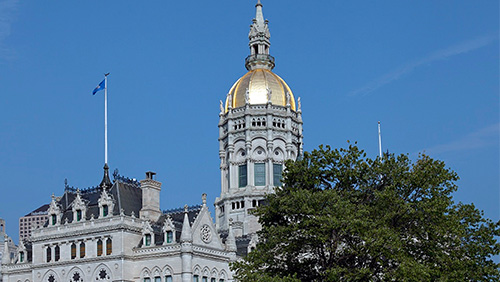Connecticut Governor Ned Lamont already indicated that he didn’t expect legislation to be approved this session that would have allowed a joint resort casino project in Bridgeport between the Mashantucket Pequot and Mohegan Indian tribes. He has all but ensured that this won’t happen, telling lawmakers just before the end of the current session that they should scrap plans since not enough time remained in the session to make any real progress.
 According to the governor’s spokesperson, Maribel La Luz, “This 11th-hour proposal has not been fully vetted or reviewed, and with only one day until the end of session, it’s not in the public’s best interest to take up this matter. Instead of resolving outstanding litigation, it puts the state at increased and immediate litigation risk from multiple parties.”
According to the governor’s spokesperson, Maribel La Luz, “This 11th-hour proposal has not been fully vetted or reviewed, and with only one day until the end of session, it’s not in the public’s best interest to take up this matter. Instead of resolving outstanding litigation, it puts the state at increased and immediate litigation risk from multiple parties.”
Connecticut’s lawmakers began their summer break Thursday; however, it’s possible that the state’s General Assembly could discuss the possibilities over a special summer session. The tribes, along with Bridgeport Mayor Joseph Ganim, had hoped to find approval for a bill that would have directed $100 million in city and state funding to the project.
The deal reportedly also included provisions that would have given the tribes exclusivity for sports and online gambling. Ganim asserted that he wasn’t aware of any such arrangement, telling reporters, “I have no idea, no idea. I guess we’ll just have to see what happens.”
Everything started to heat up after the tribes were given permission to build a satellite casino in East Windsor in 2017. That venue was proposed as a response to the MGM Springfield in Massachusetts, about 13 miles away. MGM then tried to argue that Connecticut was effectively allowing commercial casinos by authorizing the tribal facility, and that it should be allowed to operate in the state, as well. The company’s deep pockets were able to help it find substantial support among Connecticut lawmakers.
The issue took another twist when the Department of the Interior (DOI) refused to approve Connecticut’s attempts to change tribal gaming compacts. The DOI finally gave its authorization on the compacts this past March, but the tribes are still trying to find the funds after so many delays.
Those delays will most likely continue, even if the tribes find the investment funds. MGM is prepared to do whatever is necessary to protect its Springfield property and the revenue it makes, and will most definitely be willing to massage more than a few political relationships to make that happen.